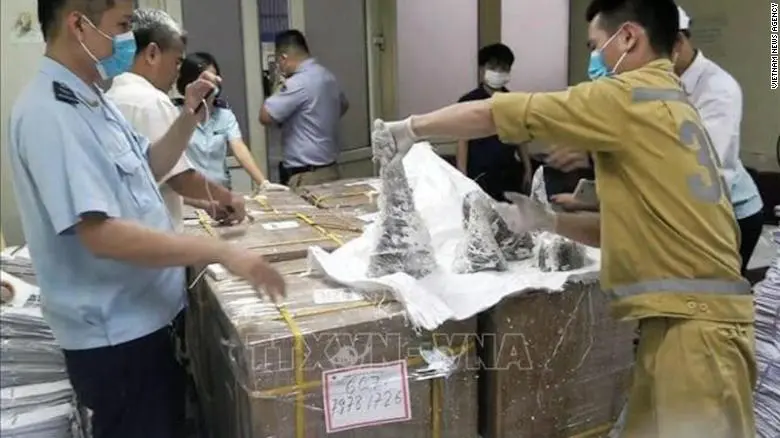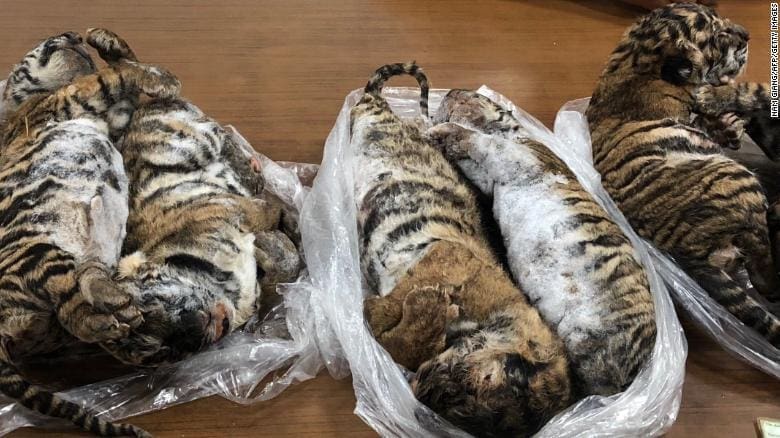125kg of rhino horn has been seized by airport officials in Vietnam. The shipment found at Hanoi airport is one of the biggest ever wildlife trafficking cases in South-East Asia.
Fifty-five individual pieces of rhino horn, encased in thick plaster were shipped in from the United Arab Emirates. Customs officials took over half a day to break all the packages open.

Vietnam has the world’s largest market for illegal rhino horn, according to the World Wildlife Fund. When ground down to powder, rhino horn fetches up to $60,000 per kg in Asian countries such as China and Vietnam. Here, buyers falsely believe it has medicinal properties and can cure health problems like hangovers and even cancer. The global market is thought to be worth about $500 million.
This seizure is part of a broader crackdown in Vietnam, and came about on the same day that police arrested a key wildlife trafficking suspect along with two other men, after seven frozen tiger carcasses were discovered in their vehicle in a parking lot.

The country has become a hub for black market wildlife trade, with everything from rhino horn and tiger bones to elephant ivory and pangolin scales being trafficked. Just last week, Singapore officials stopped a record $48m shipment of elephant tusks and pangolin scales set out for Vietnam.

Although the trade in rhino horn has been illegal since the 1970’s – black market trade has decimated the population, especially as demand from Vietnam and China continues to grow. The animals are most often poached in Africa and smuggled to Asia. There are now only around 29,000 rhinos left in the world, according to the International Rhino Foundation, and it is estimated three rhinos a day are poached in South Africa alone.
Experts say the poaching crisis continues to exist due to weak law enforcement and a lack of adequate punishment.
